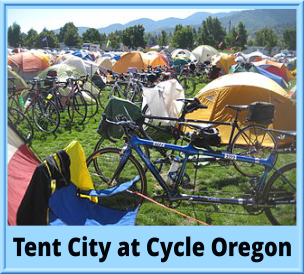 By Kathleen Merryman
By Kathleen Merryman
Tuesday, June 18, 2013
Reprinted from The Tacoma Weekly
§
Tacomans Are Once Again Discussing a Tent City
We had this conversation a decade ago, when street activist Hank Montgomery confronted the needs of homeless people – and all the people who were trying in good faith to meet those needs. It was a caustic experience, though. On the bright side, Montgomery did end up with housing. He is doing well, and is happily married.
In the decade since, the people who dedicate their lives to trying to end homelessness have made progress. They have adopted strategies that work for families, teens, veterans, people with disabilities, addicts and those with mental illness.
Catholic Community Services took over the decrepit and dangerous shelter run by Martin Luther King Housing and Development Association. Tacoma Avenue Shelter is safe, clean, flexible, and connects guests with the other services they need. Guests with jobs can keep their bunks and come and go to meet their work hours. People waiting to get in have a covered space, with snacks. Security looks out for both guests and neighbors.
Coalition to End Homelessness members have brought in money for more programs, more beds. Tacoma Rescue Mission built a family shelter on Adams Street. Associated Ministries runs Access Point for Housing, a central place for people to seek emergency or transitional shelter. MDC and Catholic Community Services are building secure housing for people who have been homeless for years.
They attract government, foundation and private attention because their programs are innovative and collaborative. Funding follows because those programs work.
As MDC’s Troy Christensen told Coalition members this week, they can at last see the possibility of ending homelessness. The Point In Time Count of people who are living outside shows a drop from 727 to 126 during the last eight years. Those figures are not exact, but they show a downward trend – and an unmet need: There are not enough beds.
That’s the refrain from Coalition members, and it’s the reason why many of them are considering the idea of a tent city.
The first group to propose a plan has made a rocky start, but its members are sincere and flexible. They made the initial mistake of confronting rather than sharing. Now they are eager to collaborate.

Speaking at 06/10/2013 TCT Kickoff
Their idea has evolved from their participation in Occupy Tacoma, the political encampment in downtown’s Pugnetti Park. Since folding their tents, they’ve met at First United Methodist Church and connected with SHARE, which oversees tent cities in Seattle.
Neal Rogers lived in Tent City III in Seattle, camped in Tacoma with Occupy and now lives and works in Tacoma. He presented Tent City Tacoma’s case at the group’s first public informational meeting June 10.
“The shelters have overflowed. Current measures to address homeless concerns are inadequate in number and scope,” he said. “A tent city is cheaper and easier to maintain than an indoor shelter.”
In Seattle, a city of 100 residents requires about $3,000 to $4,000 a month to pay for portable toilets and showers. SHARE gets that money from Federal Emergency Management Agency, plus donations from neighbors and churches.
Rogers said neighbors like tent cities, and that crime rates drop around them.
Residents have their personal spots, live with their partners and abide by rules that include no drugs, alcohol or open flames. Sex offenders and people with warrants can’t live there. Neither can children nor people with some mental illnesses. Everybody helps with group tasks, including cooking, security patrols and volunteering. Residents elect leaders.
Those basics sound reasonable.
But Rogers, in his passion for the project, gave the impression that Tacoma’s shelters are dangerous and don’t accommodate guests’ job schedules.
“Shelters are also frequently unsanitary and frequently understaffed,” he said.
Some force religion onto guests.
It is difficult to get from shelters to services, he said. People have no place to store their possessions. The whole system renders the people who use it voiceless and faceless.
Residents of Seattle’s tent cities are willing to move here to show us how to run one, or two.
That, as you might imagine, stung providers who have, for the most part, fixed those issues here.
That the allegations are not true matters to a community with services built on facts and accountability.
That the attitude is confrontational does not work in a community where services are built on collaboration.
That, and telling Tacomans that people from Seattle know best how to fix their problems, is just plain nuts.
So, yes, it was a bad start.
If this were a lesser community, or if the new tent city backers were arrogant and intransigent, we’d be in for another unproductive spectacle.
But Tacoma’s providers are resilient, and Patricia Menzies, Marilyn Kimmerling, Vince Hart, Neal Bernstein and Rogers of the tent city team regrouped on June 18 to reflect on their mission.
They took the time to outline their individual visions and found the commonalities: They want a safe, sanitary resource that benefits the people who live in it and the people who live around it. They want the residents to accept responsibility for their lives and have the services they need to succeed. They want residents to have what amounts to a neighborhood where people know and trust each other.
They want what the current providers want.
No more confrontation, they agreed. No more politics or drama or Seattle know-how.
They are eager to collaborate, Kimmerling said. If the Coalition needs people to lobby for mental health care funds, they’ll lobby. If the Coalition needs advocates for youth services, they’ll step up. They are ready to be a resource. They are willing to temper their urgency with patience and care.
They are ready to talk with, and listen to, Tacomans to determine if we can do better than a tent city, or if not, if it is the best solution.
If that is the case, they are willing to collaborate to make it the best possible response to an intolerable social ill.
It will be an interesting conversation.



Check out places like this for funding I used to know a couple programs that were nonprofit as I explained and they requested grants like this hhs.gov/grants and acorn in burien 2062441784might help your team organize enough petitions to help get you funded they can lead you to your congressmen in Olympia to help legislators understand the needs of the homeless. Also there is a program that funds Women called sba.gov try usa.gov too goodluck Sincerely
Jesus Christs helper
CHRISTINE MESA